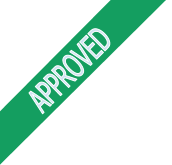River Valley Charter School
Minutes
Accountability Committee Meeting
Date and Time
Tuesday August 26, 2025 at 6:00 PM
Location
By zoom
River Valley Charter School welcomes your participation at Board meetings. The purpose of a public meeting of the Board of Trustees (“Board”) is to conduct the affairs of the organization in public. Your participation assures us of continuing community interest in our school and assists the Board in making the best decisions for our school. To assist you in the ease of speaking/participating in our meetings, guidelines are provided at the bottom of this agenda. All materials for all board and committee meetings, are available on our Board on track public portal found at rivervalleycharter.org.
Committee Members Present
A. Godino (remote), A. Ting (remote), C. Irose (remote), J. Patterson (remote), K. Kuse (remote), M. Mitchell-Daniels (remote), P. Ganley (remote)
Committee Members Absent
A. Salerno, D. Herrera
I. Opening Items
A.
Record Attendance
B.
Call the Meeting to Order
C.
Approve June 2025 Minutes
Changed minutes to indicate that Achala Godino was absent from the June 2, 2025 Accountability Committee Meeting.
D.
Review roles and responsibilities of the accountability committee
E.
Finalize accountability committee calendar dates and meeting times/ formats
The committee agreed to the current proposed dates and times, as listed on the school public calendar. The meetings will be held over either zoom or in person, but no hybrid method will be available. At the next meeting we will confirm the dates that will be zoom vs. in person. The meeting on Sept 16, 2025 will be held over zoom at 6pm.
While the time of the meetings was not perfect for all members, it was decided that the proposed times and dates were the best option for the committee as a whole.
F.
Updates from Admin / overview of anticipated topics for this school year
Committee members reintroduced themselves, citing areas of expertise, relationship to RVCS, and motivations for serving on the commitee.
The committee discussed the timing and process of the annual survey, noting that it should follow last years timing, where it was sent out in January with results shared by March.
The importance of having the questions ready to share with full BoT by the November meeting was emphasized for any additional survey comments.
It was also highlighted that having the results shared by March gave time for the Administration to affect change before the end of the year.
The special education audit was highlighted, with expected audit to to happen in Feb 2026 with report expected before the end of the school year.
The committee noted the importance of reviewing disaggregated data, particularly with MCAS and screeners, but carried out with the upmost care for privacy of our students.
The need for better recording and tracking of accountability plan criteria progress was noted. Proposed to add a tab to the draft accountability dashboard to track progress.

AT reviewed the roles and responsibilities of the Accountability Committee. The following was discussed:
Purpose and Legal Context:
Massachusetts charter schools are required to have an accountability committee
Connection to state accountability (DESE) and to the charter’s mission
How the committee supports the Board of Trustees in fulfilling oversight duties
Scope of Responsibilities:
Reveiwing academic performance (student outcomes, MCAS, internal assessments, growth over time). Both disaggregated data and aggregated data are reviewed.
Reviewing organizational health (staff retention, culture, compliance, financial sustainability)
Evaluating faithfulness to the charter (Montessori model fidelity, unique commitments made in charter application/renewal)
Supporting renewal and site visit preparation
Compliance and Risk Management:
Understanding DESE accountability frameworks (e.g., performance criteria for renewal)
Identifying early warning signs of academic or organizational risk
Supporting corrective action or board-level interventions if needed
Practical Expectations for Members:
Time commitment (meetings, data review, site visits)
Skills and perspectives that strengthen the committee (education, finance, governance, parent voice)
Commitment to objectivity and mission-alignment
Committee–Board Relationship:
Advisory vs. decision-making role
How the committee reports findings to the full board
When and how recommendations flow from the committee to board action
Tools and Processes:
Annual accountability calendar (e.g., state reports, board self-evaluations, school performance updates)
Use of data dashboards, surveys, and school improvement plans
Documenting minutes, findings, and recommendations for board record-keeping
Interaction with Stakeholders:
Collaborating with school leadership to understand context behind data
Ensuring parent and community perspectives are included
Balancing transparency with confidentiality (especially with sensitive staff/student data)
Long-Term Goals:
Building institutional memory for the board
Supporting continuous improvement beyond compliance
Ensuring accountability is a living practice rather than a “check-the-box” exercise